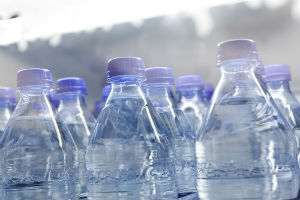The Rise of the Obesogens

Diet advice as it pertains to weight gain has been simple – take in than you can burn off and you'll gain weight. The calorie in, calorie out approach to weight loss is not only outdated, it’s also ineffective in some cases. While no one is arguing the benefits of a healthy diet and exercise regime for maintaining a healthy weight, there is more that goes into weight gain than meets the eye. Obesogens are one of the main factors, and public health officials are calling them one of the greatest health threats of our time.
What Are Obesogens?
Obesogens, as reported by US News, is another term for endocrine disruptors, environmental compounds that trigger an unfavorable response in hormone equilibrium. [1] Your hormones control practically every function you can think of, from maintaining mood to regulating proper energy levels. It turns out that when your hormones are disrupted by a foreign compound, like bisphenol-A (BPA), you’re more likely to see fluctuations in your weight. [2] Exposure to obesogens can come from any place imaginable, and some are so well hidden that it’s practically impossible to avoid 100% of the time.
Fortunately, there’s a great deal of research being conducted on the effects of obesogens, their prevalence, and the best ways to deal with their obstructive toll on the human body. The study of endocrinology has made us highly aware of some of the top endocrine disruptors – or obesogens – in our environment that may be contributing to the obesity epidemic in the United States. These include:
- Bisphenol-A. Found mainly in commercial plastics. BPA can seep through food contained in plastic containers.
- Fire retardants. Commonly used in the production of furniture. These chemicals are inhaled in the home and damage thyroid health.
- Phthalates. These chemicals are also found in plastics. Route of exposure is mainly through water consumption, with research linking them to thyroid disorders, obesity, and cancer.
- Air pollution. Breathing in air pollution on a consistent basis is associated with hormone disruption and obesity.
- Pesticides. Most pesticides are consumed through food or breathed in through air exposure. These chemicals have been directly linked to weight gain, most notably by thyroid suppression.
As you can see, these chemicals are everywhere. Using glass to contain your food and beverages, choosing organic whenever possible, and reducing your outdoor and indoor air pollution exposure are all helpful protection methods. If you are experiencing weight gain from a known thyroid disorder, you might want to consider studying up on the many different endocrine disruptors you may unknowingly be exposed to. Knowledge of these compounds can go a long way in protecting you from a host of health issues, not just obesity.
References (2)
- Magaly Olivero. Obesogens: the Evironmental Link to Obesity. US News.
- Song Y, Hauser R, Hu FB, et al. Urinary concentrations of bisphenol A and phthalate metabolites and weight change: a prospective investigation in US women. Int J Obes (Lond). 2014 Dec;38(12):1532-7. doi: 10.1038/ijo.2014.63.
†Results may vary. Information and statements made are for education purposes and are not intended to replace the advice of your doctor. If you have a severe medical condition or health concern, see your physician.

Dr. Edward Group, DC
FOUNDER | HEALER | ADVOCATEDr. Group, DC is a healer and alternative health advocate, and an industry leader and innovator in the field of natural health who is dedicated to helping others. He is a registered doctor of chiropractic (DC), a naturopathic practitioner (NP), and proud alum of Harvard Business School and MIT Sloan School of Management. Dr. Group, DC is the founder of Global Healing – a mission and vision he has shared through best-selling books and frequent media appearances. He aims to spread his message of positivity, hope, and wellness throughout the world.










